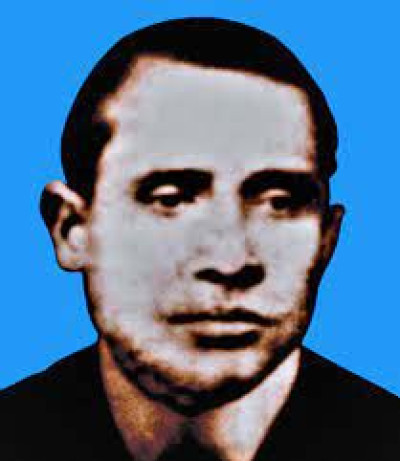Life & Legacy
Often remembered as "Bhangoni Kunwor" for his extraordinary translation skills, Agarwala was one of the early pioneers of modern Assamese prose and poetry, seamlessly blending linguistic elegance with patriotic fervor.
Early Life and Education
Ananda Chandra Agarwala was born in 1874 in the Biswanath Chariali region of present-day Sonitpur district (formerly undivided Darrang). He belonged to a distinguished family known for its literary and administrative service.
A brilliant student, Agarwala was well-versed in multiple languages, including Assamese, Bengali, Hindi, and English, which helped shape his future as a translator and linguist of high repute.
Literary Contributions
Agarwala was a key contributor to the early growth of modern Assamese literature. His writings reflected a unique combination of aesthetic refinement, moral consciousness, and cultural pride.
Notable Contributions:
-
Authored original Assamese poetry that celebrated nature, culture, and nationalism
-
Translated several poems of English literary giants, including Wordsworth, Longfellow, and others, into Assamese with remarkable poetic beauty – earning him the nickname “Bhangoni Kunwor” (Prince of Translation)
-
Enriched Assamese literature by introducing global literary themes in native idioms
-
Contributed scholarly essays and historical notes on Assamese society and heritage
His poetry was published in journals like “Jonaki”, marking his presence during the Jonaki Era, a defining movement in modern Assamese literature.
Public Service and Administrative Excellence
Ananda Chandra Agarwala also served with distinction in the British administrative services in Assam. As a Deputy Commissioner, he played a vital role in the development of infrastructure, education, and local governance in several districts.
His career in administration was guided by integrity, cultural awareness, and public welfare, and he stood out as an officer with both intellect and compassion.
Awards and Honors
-
Felicitated for his literary translations and original Assamese compositions
-
Recognized by Asam Sahitya Sabha for his contributions to Assamese language and literature
-
Remembered as a literary torchbearer of Assam, whose balanced contributions in literature and governance are rarely matched
Legacy
Ananda Chandra Agarwala passed away in 1940, but his impact on Assamese literature and civil services remains etched in history. His work continues to be taught in Assamese curricula and cited in literary research across Assam.
He was the younger brother of Chandra Kumar Agarwala and part of the literary movement that shaped modern Assamese identity during the British colonial era.
Today, he is remembered for:
-
Elevating Assamese poetry to international literary standards
-
Building bridges between Western literary traditions and Assamese culture
-
Contributing to the governance and development of Assam with wisdom and dedication
Conclusion
Ananda Chandra Agarwala was not just a poet or an administrator — he was a cultural architect of modern Assam. His mastery of language, passion for literature, and commitment to public service define his place among the greatest Assamese minds of the 20th century.
For anyone seeking to understand the foundations of Assamese literary excellence and ethical governance, the life and work of Ananda Chandra Agarwala offer timeless inspiration and national pride.
